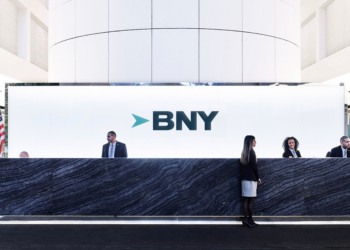Open Bank Project’s Chaib: Open APIs will benefit banks and startups
Good news for fintech startups: In the future, every bank will have an API. That’s according to Ismail Chaib, chief operating officer at Open Bank Project, a Berlin-based open source API platform for banks. He sat down with Bank Innovation’s sister accelerator INV Fintech on Monday to discuss emerging trends in open banking and lessons already learned from bank-fintech collaborations.

Open Bank Project allows financial institutions to securely and rapidly update their digital offerings using an ecosystem of third-party applications and services. Chaib helped the platform grow from nothing to 10,000 fintech developers worldwide who have built out nearly 250 API endpoints for about 40 bank customers, including BNP Paribas, HSBC, ABN-Amro and Citizens Bank.
Below are four key excerpts from Chaib’s webinar hosted by INV Fintech:
Banks stand to benefit as much as fintechs
Fintechs will benefit from having access to data and to customers. Financial institutions also will benefit from opening up these APIs as a result of internal efficiencies. Partnering with third parties will generate external opportunities to speed up the bank’s innovation efforts and bring new products and business models to market.
The U.S. is an exception to the rule, with a market-driven approach
More than 48 countries are pushing banks toward open banking, according to Chaib. Meanwhile, there is no regulatory push towards open banking in the U.S. However, U.S. industry participants are building an API standard for all the banks that are part of NACHA [administrator of the ACH Network]. It’s a market-driven initiative.
PSD2, the EU’s open banking regulation, basically forces all the banks in the European Union — more than 6,000 financial institutions — to provide APIs for access to transaction data, account information and payment services. If you’re a third-party provider in Europe, you will be able to ask for data from any of the banks in the European Union. Moreover, the open banking movement is spreading across the planet, including such markets as Nigeria, Brazil, Mexico and Australia.
Smaller banks are hindered by not owning their tech stacks
Small local and regional banks and credit unions are trying to innovate, but they can’t — or it’s very hard. This is because they mainly rely on Fiserv and other core providers. There is, however, a genuine commitment among them to innovate as they are aware of the threats. You can do a lot on your own but, if you don’t own your technology, that’s really where it gets problematic. An API layer could help with some of that but, at the end of the day, owning parts of your technology stack is really the critical piece.
Fintechs should engage banks early on
Engage early. Many banks are starting to do sandboxes and hackathons. These are really great opportunities to establish a first connection with a bank and show what you have. They’re usually led by the bank’s innovation department. It’s all about finding the right use case, meaning something that will resonate with the bank.












